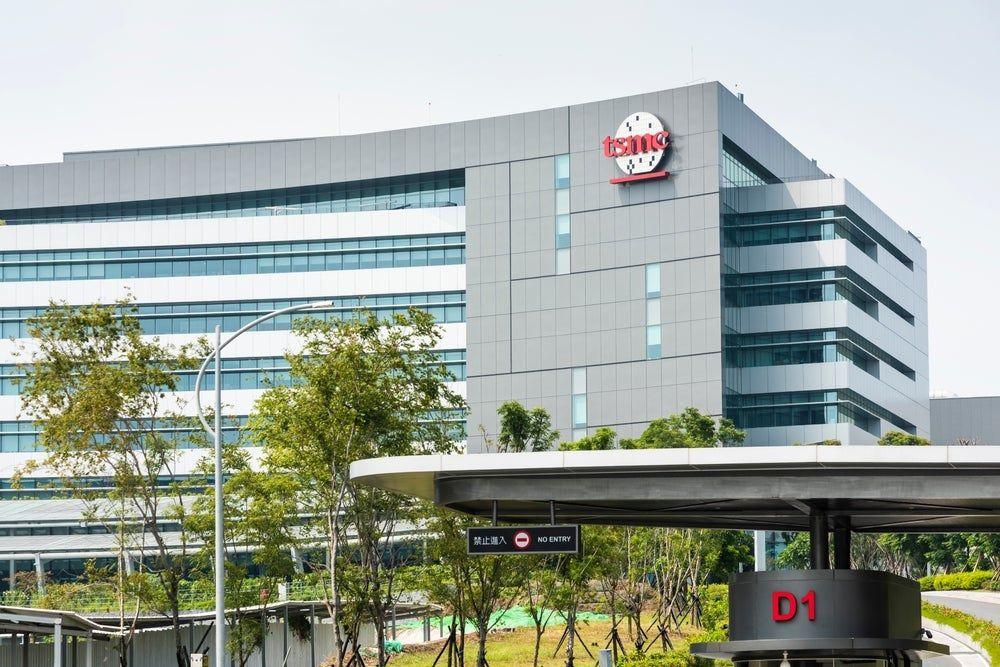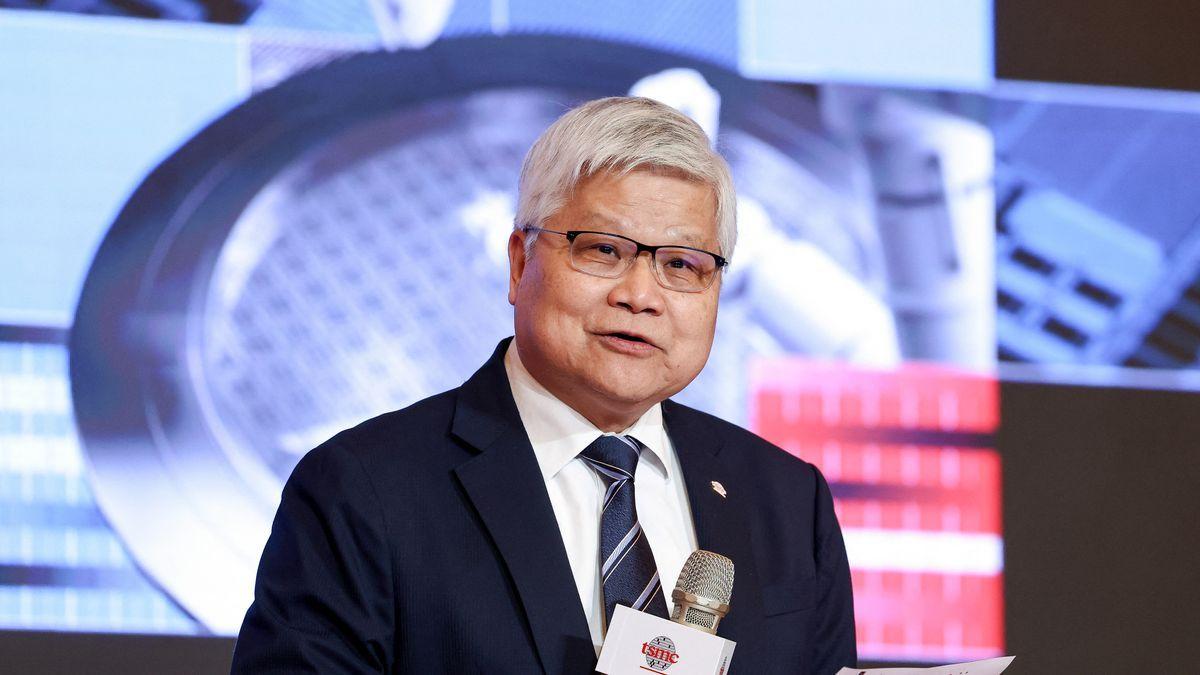TSMC's Global Expansion: Japan Delays and US Prioritization Amid AI Chip Demand
2 Sources
2 Sources
[1]
TSMC flags delays in Japan expansion while U.S. plans advance
Taiwan Semiconductor Manufacturing Company CEO C. C. Wei blamed worsening traffic snarls for delays in expanding its base in southwest Japan, even while a parallel U.S. effort races ahead. Wei reaffirmed TSMC's commitment to spend another $100 billion to ramp up manufacturing in Arizona over the next half-decade, while saying a plan to build a second plant in Japan was experiencing slight delays. He stressed productive discussions with Donald Trump earlier this year, even after telling the U.S. president it will be "very, very difficult" for TSMC to complete the massive buildout in five years due to a shortage of skilled labor. Trump was "warm" during their exchange, Wei said. The twin projects embody TSMC's impetus to produce abroad as geopolitical tensions rise and demand grows for Nvidia chips essential for developing AI. TSMC has long operated mostly from its home turf of Taiwan but built a plant in Japan after securing a raft of commitments and incentives from Tokyo. It then announced plans to dramatically increase its U.S. investment days after Trump took office.
[2]
Taiwan Semiconductor's Japan Chip Factory Faces Delays, While US Expansion Takes Priority - Taiwan Semiconductor (NYSE:TSM)
Taiwan Semiconductor Manufacturing Co TSM CEO C.C. Wei blamed traffic jams for delays in expanding its base in southwest Japan, hampering the progress of its Tokyo signature chipmaking project. Wei also reiterated their commitment to invest another $100 billion to ramp up manufacturing in Arizona over the next half-decade. However, he also highlighted to President Donald Trump the difficulties in completing the monumental construction in five years due to the skilled labor crisis, Bloomberg reported on Tuesday. Also Read: Taiwan Semiconductor Eyes UAE Gigafab, Seeks Crucial US Green Light Taiwan Semiconductor's plan to build a second factory in Japan's Kumamoto Prefecture remains vulnerable to the sudden inrush of workers from the contract chipmaker's first plant, which is taking a toll on the rural infrastructure. Interestingly, the chipmaker's prioritization of the U.S. expansion reduced the urgency of production in Japan. Prior reports indicated President Trump's tariff warning coaxed Taiwan Semiconductor to ramp up investment in the U.S. without incremental subsidies. Japan's connection to ancestral land has made it difficult to promptly improve infrastructure despite the availability of government subsidies to attract foreign factories. Concerns also remain over the longer-term outlook for AI demand. Taiwan Semiconductor's conviction over demand for chips critical to developing artificial intelligence helped reassure investors against the Trump administration's tariff policies. However, the company remains cautious about the outlook for the 2025 global economy and semiconductor industry. Reportedly, Taiwan, Japan, and the U.S. are establishing closer trilateral cooperation in the semiconductor industry, forming a "semiconductor iron triangle." The Taiwanese contract chipmaker's Arizona factory uses Japan-made manufacturing devices and materials. Japanese Minister of Economy, Trade and Industry Yasutoshi Nishimura expects collaboration in advanced chips to help the countries develop 5G, self-driving vehicles, and generative artificial intelligence. He also proposed closer Taipei-Tokyo exchanges in the energy sector. Price Action: TSM stock is up 0.52% to $195.86 at last check on Tuesday. Read Next: Taiwan Semiconductor To Build Chip Design Center In Germany: Report Photo by Jack Hong via Shutterstock TSMTaiwan Semiconductor Manufacturing Co Ltd$195.100.13%Stock Score Locked: Edge Members Only Benzinga Rankings give you vital metrics on any stock - anytime. Unlock RankingsEdge RankingsMomentum82.73Growth95.12QualityNot AvailableValue51.55Price TrendShortMediumLongOverviewMarket News and Data brought to you by Benzinga APIs
Share
Share
Copy Link
TSMC faces delays in its Japan expansion due to infrastructure challenges, while prioritizing its US investment. The company navigates geopolitical tensions and increasing demand for AI chips.
TSMC's Global Expansion Strategy
Taiwan Semiconductor Manufacturing Company (TSMC), the world's largest contract chipmaker, is navigating a complex landscape of global expansion, geopolitical tensions, and surging demand for AI chips. CEO C.C. Wei recently shed light on the company's progress and challenges in its international ventures, particularly in Japan and the United States
1
2
.Japan Expansion Faces Setbacks
TSMC's plans to expand its presence in southwest Japan have hit a snag due to unexpected infrastructure challenges. Wei cited worsening traffic congestion as a primary factor delaying the expansion of their base in the region
1
. The company's plan to build a second factory in Japan's Kumamoto Prefecture is particularly affected by the sudden influx of workers from TSMC's first plant, straining the rural infrastructure2
.US Investment Takes Priority
In contrast to the delays in Japan, TSMC is forging ahead with its ambitious plans in the United States. Wei reaffirmed the company's commitment to invest an additional $100 billion over the next five years to ramp up manufacturing capabilities in Arizona
1
. This prioritization of US expansion has reportedly reduced the urgency of production increases in Japan2
.
Source: Benzinga
Challenges and Geopolitical Considerations
Despite the strong commitment to US expansion, Wei acknowledged significant challenges in completing the massive buildout within the five-year timeframe. In discussions with President Donald Trump, Wei emphasized the difficulty of the task, particularly due to a shortage of skilled labor
1
. However, these talks were described as productive, with Trump reportedly responding warmly to the concerns raised1
.Related Stories
AI Chip Demand and Industry Outlook
TSMC's global expansion efforts are largely driven by the increasing demand for chips essential to developing artificial intelligence, particularly those used by Nvidia
1
. This growing AI chip market has helped reassure investors in the face of potential tariff policies from the Trump administration2
. However, TSMC remains cautious about the long-term outlook for both AI demand and the global semiconductor industry in 20252
.International Collaboration and "Semiconductor Iron Triangle"
The expansion efforts are part of a broader trend of international collaboration in the semiconductor industry. Reports suggest that Taiwan, Japan, and the US are establishing closer trilateral cooperation, forming what has been termed a "semiconductor iron triangle"
2
. This collaboration extends to various sectors, with Japanese Minister of Economy, Trade and Industry Yasutoshi Nishimura proposing closer Taipei-Tokyo exchanges in areas such as energy, 5G, self-driving vehicles, and generative artificial intelligence2
.As TSMC continues its global expansion, the company must balance the demands of different markets, navigate complex geopolitical relationships, and address infrastructure and workforce challenges. The outcome of these efforts will likely have significant implications for the global semiconductor industry and the development of AI technologies.
References
Summarized by
Navi
Related Stories
TSMC Announces $100 Billion Investment in US Chip Manufacturing, Focusing on AI Chips
04 Mar 2025•Technology

TSMC to produce cutting-edge 3nm AI chips in Japan as demand from tech giants soars
05 Feb 2026•Business and Economy

TSMC Reports Strong AI Demand Amid Tariff Concerns and Quashes Middle East Expansion Rumors
03 Jun 2025•Business and Economy

Recent Highlights
1
ByteDance's Seedance 2.0 AI video generator triggers copyright infringement battle with Hollywood
Policy and Regulation

2
Demis Hassabis predicts AGI in 5-8 years, sees new golden era transforming medicine and science
Technology

3
Nvidia and Meta forge massive chip deal as computing power demands reshape AI infrastructure
Technology





